If you are following a ketogenic diet, you may be asking the question: “How much protein on keto do I really need?”
Protein is essential for the body, but it is also a hot topic in the keto space. There is a debate about whether protein can kick you out of ketosis.
We acknowledge people’s confusion, and that is why we’ve prepared this simple guide for you. Keep reading.
Does Protein Affect Ketosis?
To achieve nutritional ketosis, a person needs to1:
- Limit carbohydrates
- Eat fat to satiety
- Consume moderate protein
As you can see, the keto diet requires moderate protein consumption. To be specific, 30-35% of your calories should come from dietary protein. But what if you eat too much protein? Will it increase your blood glucose levels?
Now, we dive into the answer:
Yes, protein affects ketosis. According to Virta Health researchers, keeping your protein to moderate amounts in a well-formulated keto diet helps you reach ketone levels of at least 0.5 mM. A blood ketone reading of 0.5 mM -3.0mM tells you that you are in nutritional ketosis 2, 3.
What to know something interesting? It’s not just dietary protein itself that affects ketosis, but also the specific type of amino acid you consume.
Too much protein will impair ketone body production because it stimulates an insulin response. However, take note that protein has a lower impact on insulin compared to carbohydrates 2.
Recall that your body only produces ketones when your blood glucose and insulin levels are low. You might have also heard that insulin is a “fat storage” hormone, and that is true. It promotes glycogen storage in your liver and provides free fatty acids to your fat cells (adipocytes). Your fat cells can then use those free fatty acids to synthesize triglycerides 4.
Remember that your body needs to use up its glycogen stores before it can enter ketosis. This process won’t happen if your blood insulin levels increase.
Want to know something interesting?
It’s not just dietary protein itself that affects ketosis, but also the specific type of amino acid you consume.
In other words, different amino acids impact the release of insulin differently 2. (Just to give you a quick recap on what amino acids are, they’re the building blocks of protein.)
The Journal of Clinical Investigation shared a study that was done by Dr. John Floyd and his team. This study focused on the effects of the essential amino acids on insulin secretion 5.
They discovered that amino acids impact insulin response in the following order, from highest to lowest: Arginine, Lysine, Phenylalanine, Leucine, Tryptophan, Valine, Threonine, Methionine, Isoleucine, Histidine.
The amino acid arginine caused the highest insulin response. Histidine had the least effect on insulin 5. Although you will encounter all of these amino acids when eating a healthy diet, it would make sense to avoid foods with very high levels of the amino acids at the top of the list.
Do your research and avoid the worst offenders. For example, 1 cup of turkey meat gives around 16g of arginine, which is sky high compared to other ‘high arginine’ foods like nuts or meat which contain around 4g per cup.
How much protein can you eat in ketosis?
Now that you know that dietary protein affects your ability to enter a ketogenic state, we’re going to answer the central question: How much protein is needed on keto?
You might be aware of the fact that official guidelines for protein set by nutrition organizations differ from what ketosis experts recommend.
The RDA for protein is 0.8 grams of protein per kg of body weight for most adults. But the recommendation for nutritional ketosis is different.
A person who aims for ketosis should consume 1.2 to 1.75 grams of protein daily per kg of body weight or 0.02 to 0.03 oz of protein daily per pound of body weight 6, 2.
That means if you weigh 56 kg (or 123 lbs), you will need 67 to 98 g (or 2 to 4 oz) of protein daily.

We know what you’re thinking – that the required dietary protein for ketosis is higher than standard recommendations. The reason is that the protein range for ketosis includes a buffer to maintain protein balance. Your protein needs change depending on these factors 2:
- Stress
- Illness
- Aging process
- Trauma
- Calorie restriction
So for those following a well-formulated keto diet, moderate protein consumption equals 1.2-1.75 grams per kg daily. That means if you weigh 56 kg, you should limit your dietary protein to 67-98g daily.
How to know if you're eating too much protein for ketosis
While you can consume at least 1.2 grams of protein each day, it’s also important to note that each person tolerates protein differently. So, how can you tell that you’ve been eating too much protein on keto?
Check out for these signs and symptoms:
- Foamy or bubbly urine – Too much protein in your diet will spill off into your urine and make it foamy. Albumin in your urine reacts with air. This is what creates bubbles 7.
- Diarrhea – Another side effect of eating more protein than needed is diarrhea, according to Livestrong and a 2006 study. Diarrhea happens for a few reasons. One is that a person may consume more dairy to meet his or her protein target. The second reason is that eating more protein can sacrifice other nutrients that lead to deficiencies 8, 9.
- Decreased blood ketones – Pay attention to your blood ketone levels. If it drops below 0.5 mM, slowly reduce your protein intake. Ketones are sensitive to your diet. If you get a reading of 0.0-0.2 mM, it means that you are out of nutritional ketosis 3.
Protein intake on a ketogenic diet ought to be moderate and not excessive.
Here’s another useful piece of advice:
Even if you know how much protein you should eat on keto to maintain protein balance, test your personal protein limit. Doing that will help you understand your body’s reaction to protein better.
To figure out your protein limit, test your blood ketones more often. Test after you eat a meal. However, make sure that your meal contains very few to no carbohydrates. Otherwise, you will get an inaccurate result (since too many carbs hinder ketosis).
See what happens if you increase or decrease your dietary protein. Adjust until your ketones reach the optimal range for nutritional ketosis. We understand that this can be daunting at first, but doing this ensures that you’re on the right track in your keto journey.

Can Too Much Protein Get You Out of Ketosis?
We’ve been discussing the effect of protein on ketosis. You already know that a protein-rich meal stimulates insulin secretion 10. When insulin goes up, the process of ketogenesis goes down 11.
So yes, too much protein can kick you out of ketosis.
Here’s the kicker:
As it turns out, people who have Type 2 Diabetes are more prone to experiencing insulin spikes after eating protein. On the other hand, if you’re generally healthy and your blood sugar levels stay within the normal range, you can tolerate protein better.
There’s a lot of confusion around gluconeogenesis. Eating more protein will not activate gluconeogenesis. Gluconeogenesis won’t put you out of ketosis.
We also want to address a common concern with protein consumption on keto, and that’s gluconeogenesis. There’s a lot of confusion around gluconeogenesis. A lot of newbie keto dieters think that gluconeogenesis is a bad thing because it interferes with ketosis. But does it really hinder ketosis?
Gluconeogenesis is a metabolic process where your body makes glucose from non-carbohydrate sources. These non-carb sources include lactate, amino acids, and glycerol 12.
This metabolic pathway is important since your brain and red blood cells depend on glucose for fuel. However, as your body produces ketones which are your alternative fuel sources, your brain can now use ketones. Thus, it saves blood glucose for your red blood cells 13.
So here’s the short answer:
Eating more protein will not activate gluconeogenesis. Gluconeogenesis won’t put you out of ketosis. If your blood ketone levels decrease due to too much protein, that’s because the protein you have eaten then triggers an insulin response.
How Much Protein per Day Does Our Body Need?
On a ketogenic diet, you need 1.2 to 1.75 grams of protein per kg on a daily basis.
This range will keep your protein consumption moderate, and it takes into account situations where you’ll need more protein such as illness and stress. In these situations, your protein needs increase to allow for tissue repair.
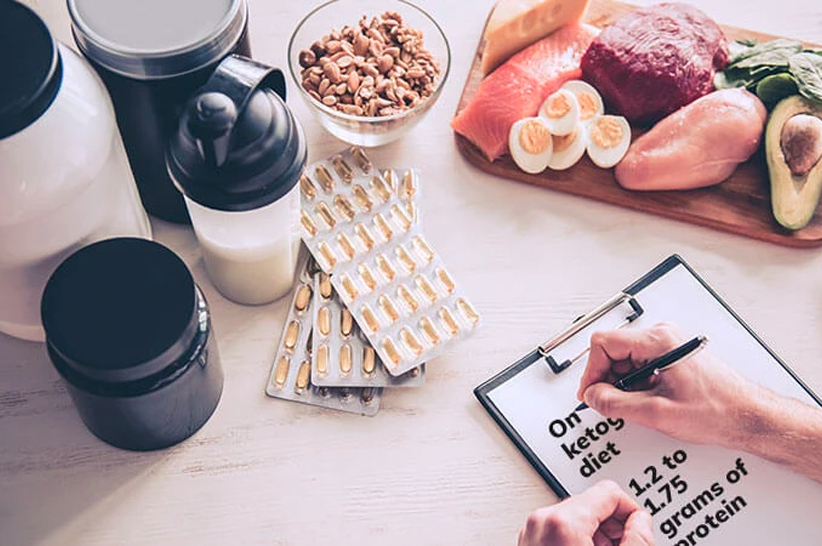
How our body responds to protein intake
Protein benefits you in plenty of ways. You need protein for the following reasons:
| Chemical reactions | Protein makes up enzymes that facilitate reactions happening in your body. These biochemical reactions include digestion, metabolism, and the formation of new molecules 14, 15. |
| Provide structure to your cells | Proteins are the reason why the cytoplasm (the solution that fills a cell) is well-structured. Actin filaments allow your cell to move and your muscles to contract 16. |
| Supports your immune system | Proteins also make up antibodies. Antibodies protect your body from harmful substances such as bacteria and viruses 17. |
| Preserves muscle mass | Amino acids in protein prevent the loss of muscle mass. This explains why we need more protein as we age. Skeletal muscle decreases with advanced age. Total body protein decreases as we grow older 18, 19. |
Can you imagine what it would be like if you ate too little protein? While too little protein boosts your circulating ketones (which are desirable for ketosis), it will also negatively impact your health.
Here, we realize how important it is to maintain adequate protein consumption.
And while you do, pay attention to your choice of dietary protein. If you take a protein supplement, make sure that it contains no artificial sugars. Choose minimally processed foods that contain essential minerals for your health 2.
Most importantly, get medical advice from your doctor if you’re planning to embark on a keto journey. A doctor who’s well-versed with the keto diet will help you determine and meet your personal macros.
Conclusion
What matters at the end of the day is that you consume enough protein. Moderate protein intake will support nutritional ketosis. At the same time, a moderate amount of protein allows you to stay in good health.
Too much protein prevents ketogenesis from happening and also causes some negative side effects. On the other hand, insufficient protein decreases muscle mass and weakens your body.
Even if you consume at least 1.2 grams of protein per kg, don’t forget to check your body’s reaction to protein as well. Do it by testing your blood ketone levels after a meal. Decrease or increase your dietary protein accordingly until you hit a sweet spot.
Takeaways
- To reach nutritional ketosis, you need a moderate amount of protein which is between 1.2 to 1.75 grams per kg daily.
- Dietary protein promotes allows insulin to be secreted. If insulin increases, ketones are not produced.
- Excessive protein does not only decrease ketone production; it also causes diarrhea and leaks into the urine.
- Moderate protein is essential for speeding up your body’s chemical reactions, providing structure to your cells, preserving muscle mass and supporting your immune system.




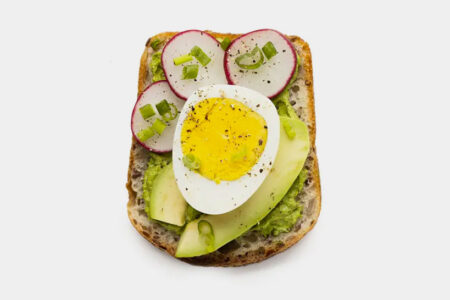
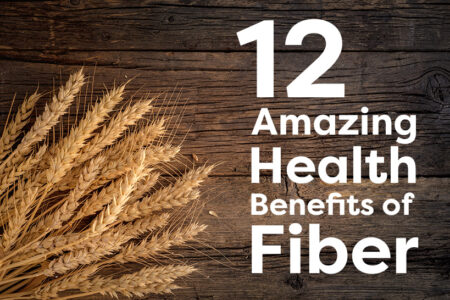
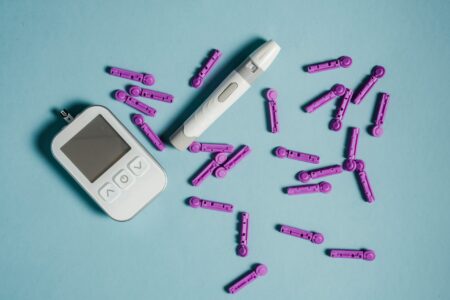

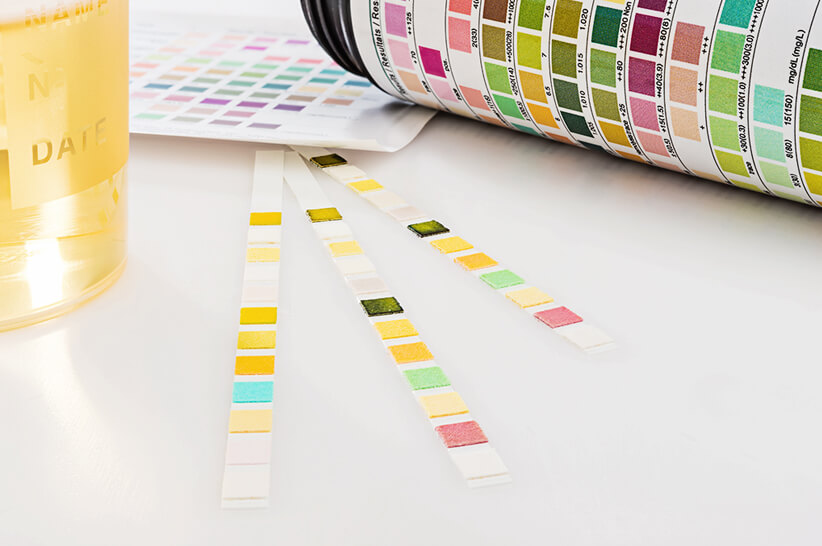

![Juicing for Weight Loss: Everything You Need to Know [Plus Recipes]](/wp-content/uploads/2019/08/Juicing-for-Weight-featured-image.jpg)






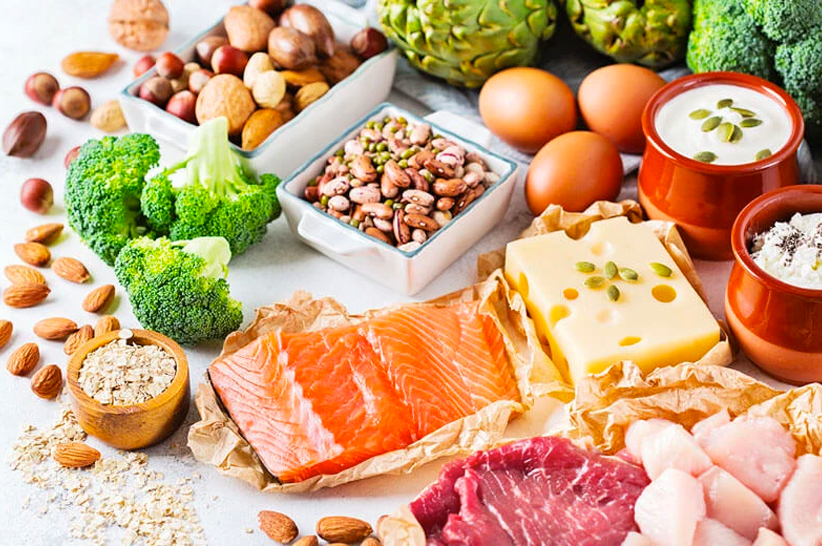




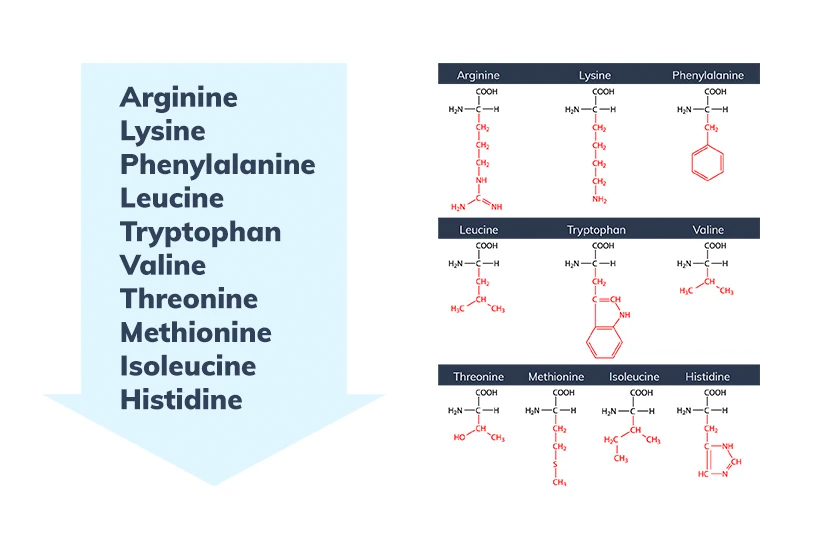
This wpuld be so much more valuable if it addressed issues facing the normal purpose, rather than the nutritionist and blood chemist. How about plain speak example rathe than ratios of grams per kilo grams?
Hi Linda, I appreciate your suggestion — that’s a great one, really!! For this particular topic, we thought it helped to get into the specifics of things, especially the ideal amount of protein per body weight to achieve ketosis. (That’s for readers who prefer counting their macros and want to dig deeper into the science of protein). And we base this on actual research.
I have had gastric bypass and am doing Keto for fibromyalgia relief, not weight loss. I take amino acid supplements to assist muscle relief and neurotransmitter production. Do you think my supplements could prevent ketosis?
Hi Kerry! To answer your question: Ideally, amino acid supplements won’t kick you out of ketosis unless they contain plenty of added carbs. (You might want to check the “Nutrition Facts” at the back of your current supplement). If there’s added carbs, make sure to include that in your daily carb allowance on keto so you don’t go over your limit.
(And if you can, it will help to test your ketone levels too, to see your body’s individual response to that supplement.)
Use everyday language! Kilos are not everyday words!
Hi Judy, first of all… thanks for sharing your honest opinion. You may have found this intimidating that the word kilos or kilograms was used. But by stating actual measurements, a keto dieter who’s eager to optimize their protein intake to stay in ketosis will be able to do it. 🙂
really that’s your answer. How about telling us what a 200 pound person needs to be in ketosis? How many ounces do they need to eat daily.
Hi Debra,
First of all, apologies for using grams per kilogram as the system of measurement.
For the imperial measurement: A person should eat between 0.02-0.03 ounces of protein per day, per pound of body weight, to maintain optimal ketosis. So if you weigh 200 pounds, you will need 4-6 ounces of protein daily.
Thanks for this really helpful suggestion. We’ve also updated this particular section in “How much protein can you eat in ketosis?” for everybody’s reference! 🙂
This article was super helpful. Thank you for this info! It helped me confirmation that I’m on the right track with my protein intake ^_^
I’m REALLY GLAD you found this helpful! Thank you! Yes, that’s what this is all about… Optimizing your protein intake so you eat enough of it to support your keto goals. 🙂 If you have some questions, please ask away. 🙂